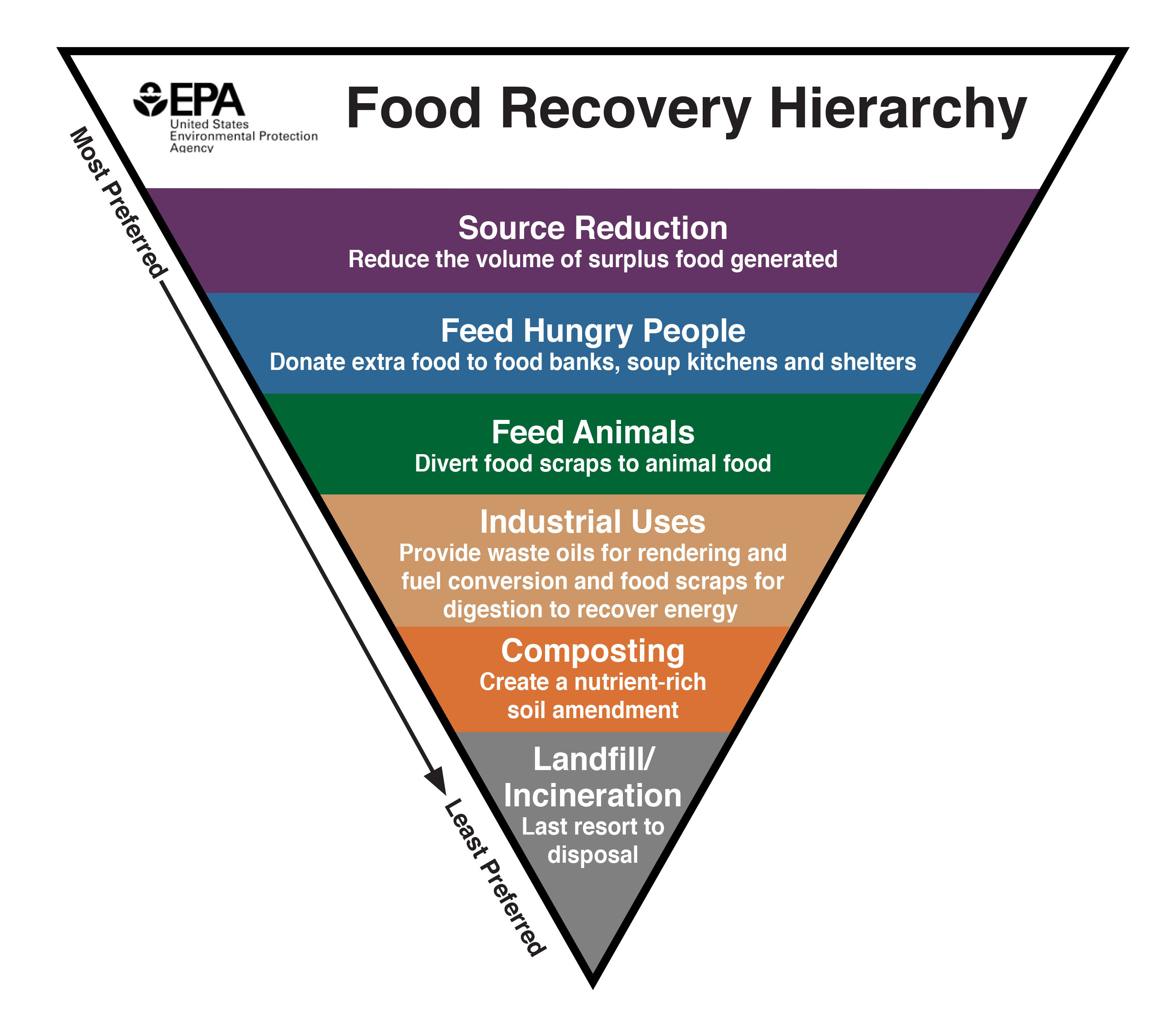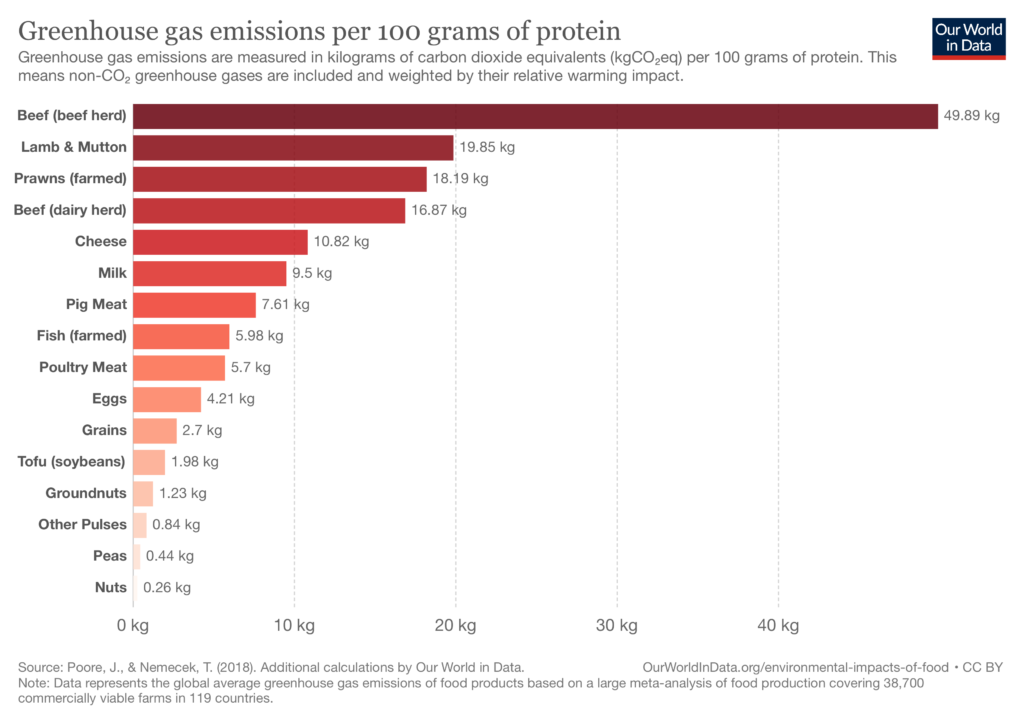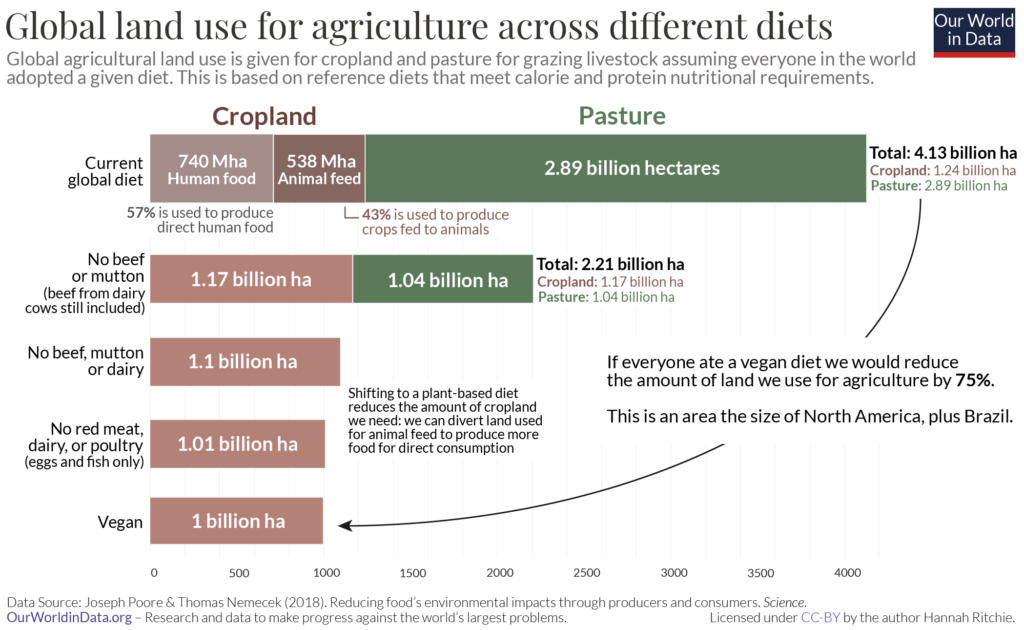
God said, “See, I have given you every plant yielding seed that is upon the face of all the earth, and every tree with seed in its fruit; you shall have them for food. ”
Genesis 1:29-30
NEW! CHECK OUT MPC’S NEW CLIMATE-FRIENDLY FOOD RECOMMENDATIONS!
MPC’S Climate-Friendly Food Recommendations were approved by the MPC Sesssion in June 2023, and are consistent with a low-carbon diet. They now apply to all MPC events organized by our church committees!
Have a look at our climate action video!
Food has an enormous impact on the environment
The biomass of humanity is about nine times as great as that of all wild mammals on land and sea. And that of livestock is fourteen times as great! Is there a more striking example of how humans have changed the world?
Globally, food production accounts for 26% of greenhouse gas emissions. It also accounts for 50% of all land use, 70% of freshwater use and 78% of ocean and freshwater pollution.
A recent article in Science magazine states: “Even if fossil fuel emissions were eliminated immediately, emissions from the global food system alone would make it impossible to limit warming to 1.5°C and difficult even to realize the 2°C target.”
But we have to eat, so what can we do about this? Two things: waste less food and eat less meat! Project Drawdown says these are among the five most impactful ways to reduce carbon emissions.
Waste less food
40% of all food is wasted in the U.S. and 30% worldwide.

Waste occurs at all stages of food production and consumption. Everyone needs to be involved in the solution. Not all solutions are equally good.

- plan ahead to avoid over-buying
- buy “ugly produce” (but caveat emptor)
- store food properly
- don’t over-rely on “use-by” dates – many foods are safe for much longer
- if you can’t use it, donate it promptly, compost it or put it in the green bin
- in restaurants, order less and take home leftovers
Eat less meat
We are taught that we need meat for protein; but there are many other ways to get enough protein, and the carbon footprint varies enormously. Ruminants (cows, sheep and goats) emit a lot of methane (CH4) and nitrous oxide (N2O), far more potent greenhouse gases than carbon dioxide.

Far more land is devoted to raising or feeding livestock than to growing food for humans.

Not only is switching to a plant-based diet one of the best things you can do for the environment, it is also one of the best things you can do for your own health, especially if you stick to whole, unrefined foods. It greatly reduces the risk of getting many rich-world diseases, and can even reverse them! One free source of recipes is forksoverknives.com.
